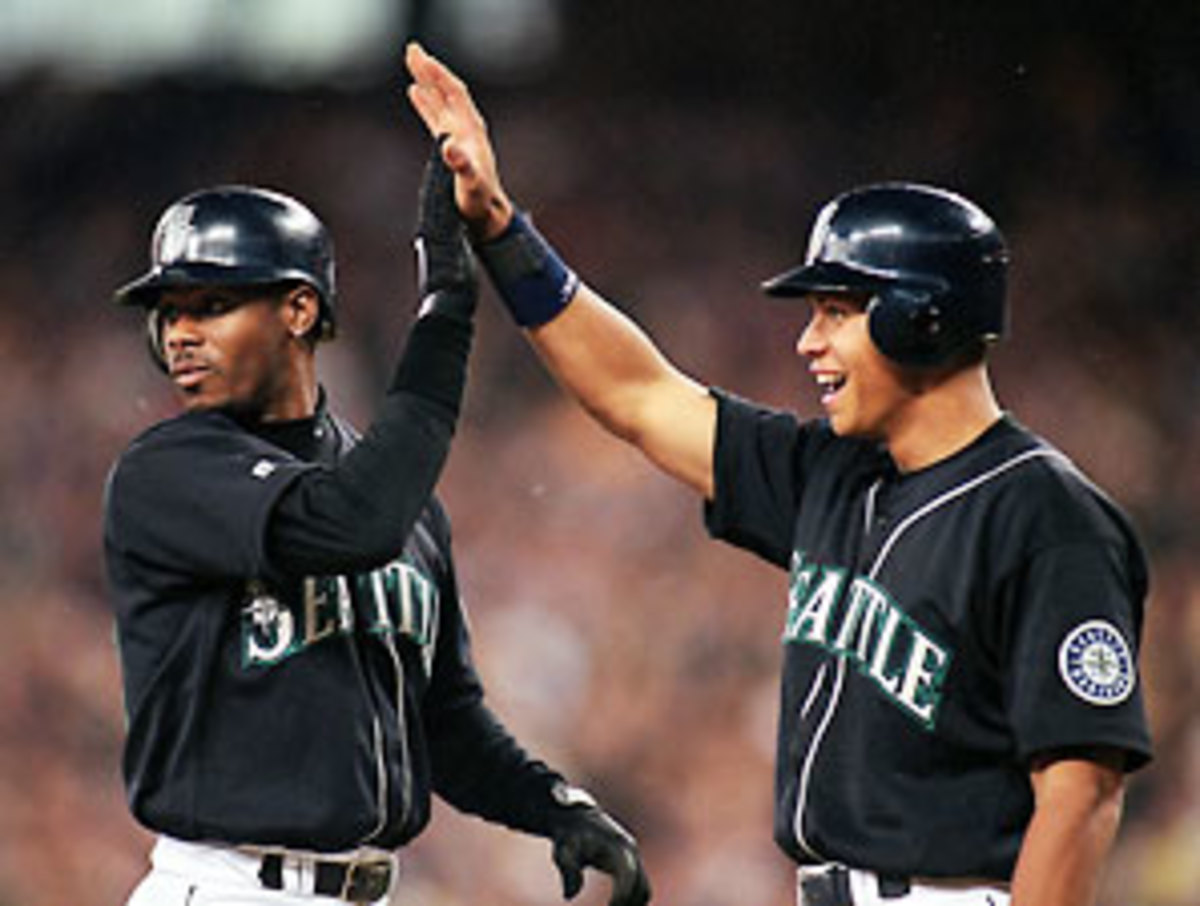Once linked by greatness, A-Rod, Junior have gone separate ways
When one spoke of Junior, he spoke of A-Rod. When one spoke of A-Rod, he spoke of Junior. They were the otherworldly Mariners, linked by power, speed, grace, guts and numbers. So what if the superstars didn't much care for one another? If Griffey thought Rodriguez to be too cocky? If Rodriguez thought Griffey to be too aloof? They were bonded by production and, by God, the production was awfully good.
And now, in the year 2009, Griffey and Rodriguez are linked once again, this time as two men facing the undeniable fade-to-black conclusions to their careers. Oh, we could easily dismiss Griffey's return to Seattle, which some say has been corrupted by numbers (.200, two home runs, five RBIs), reminiscent of Willie Mays' final futile season as an overmatched, overweight Metropolitan. Yet that would be a clichéd reaction, naive to the fact that in a game tainted by lies atop lies, Junior is bidding farewell as an honest-to-goodness ambassador; as a man who -- Please, dear God, let this be true. Please -- became a legend without the assistance of a needle or an under-the-radar bag of pills and creams.
Junior has declined because (gasp!) it is what aging, non-HGH-using homo sapiens do. We gain weight. Our hair grays. Our reaction time slows. Bill Rodgers, the three-time New York City Marathon champion, now covers 26.2 miles in a pedestrian three-and-a-half hours. Dominique Wilkins, "the Human Highlight Film," can no longer grab rim. Fernando Valenzuela's screwball travels, oh, 50 mph. Their legacies, however, are secure because we remember what they once were and appreciate the authenticity that gift-wrapped the entire package.
In the case of Rodriguez, however, there is no gift wrap. He is fading to black because (as opposed to Griffey) the skills haven't abandoned the man -- the man has abandoned the skills. At 34 and preparing to return from the disabled list, Rodriguez is still one of the game's two or three most-feared hitters. And yet, whether he plays for another season or another decade, Rodriguez is done. Finished. Kaput. Over. Gary Coleman.
According to the material leaked from Selena Roberts' new book, A-Rod: The Many Lives of Alex Rodriguez, he is not merely a liar, a fraud and an egoist, but a cheater of the first degree, whose remorseful "confession" during spring training was little more than a well-choreographed one-man interpretation of Justin Timberlake's Cry Me a River. Turns out A-Rod might have been using steroids since high school, and that he was involved with HGH after becoming a Yankee. In other words, like Mark McGwire and Barry Bonds before him, the glowing awe that once accompanied Rodriguez has -- poof! -- vanished.
Less than a year ago, people were not merely speculating how many career home runs he would hit (800? 850? 900? 950?), but also how his name atop the all-time list would return Aaron-esque decency to a record book poisoned by Bonds' regrettable presence. Rodriguez was the Brad Pitt of baseball -- the pretty boy with chops who could carry a big-budget adventure through the summer.
Now, with the latest revelations, the comparison to Pitt seems ludicrous. Instead, Rodriguez brings to mind a slightly different fabled theatrical figure -- one who, 20 years ago, took America by storm. At the time, we fell in love with Spuds MacKenzie because the bull terrier brought spark and pizzazz to the otherwise mundane world of beer advertising. He was cute and funny and talented and engrossing.
Then, we learned the truth. Spuds, a lady-killer in ads, was actually a girl. Her real name was Honey Tree Evil Eye, and she didn't even like beer.
Turns out, ol' Spuds MacKenzie was nothing special after all.
Just another dog.





